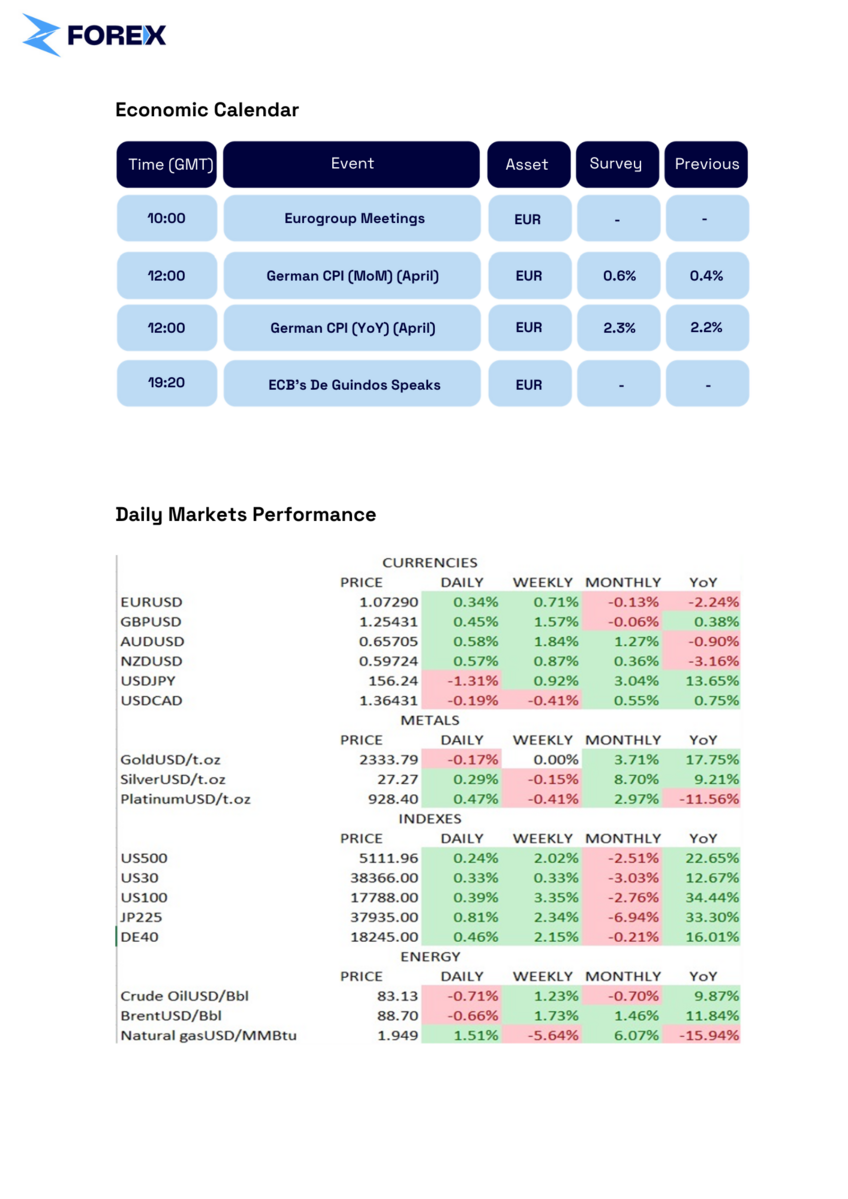Dollar Index Dips, Gold Slips, Yen Rallies, and Oil Concerns Persist
The dollar index fell below 106 as investors exercised caution ahead of the Federal Reserve meeting, where interest rates are expected to remain unchanged. Despite strong US economic data, growth in Q1 2024 was lower than expected. The upcoming non-farm payrolls report will provide further insight into the labor market. The dollar weakened against most currencies but gained against the yen on market sentiment regarding Bank of Japan policy.
Gold slipped below $2,330 per ounce on Monday, influenced by a stable US dollar that made the precious metal less attractive to foreign buyers. Investors awaited the Federal Reserve's monetary policy meeting after PCE data in the US PCE data matched expectations. In March, both the monthly and core inflation rates rose by 0.3%, meeting market forecasts.
However, annual headline inflation rose to 2.7%, while the annual core rate remained at 2.8%, contrary to predictions of a slowdown. This suggests persistent inflationary pressures, with many investors expecting the first interest rate cut in September. Higher interest rates reduce the appeal of gold, which doesn't yield interest. The Fed is expected to maintain the current policy rate range of 5.25%–5.5% on Wednesday, indicating no immediate plans for cuts.
On Monday, the Japanese yen rallied by up to 2% against the dollar, reaching around 155 per dollar, after hitting lows of approximately 160.2 earlier in the session. Market observers interpreted this as a potential government intervention, following reports of Japanese banks aggressively selling dollars. Traders have long been anticipating intervention from Japanese authorities due to the yen's substantial decline to 34-year lows and its over 10% drop against the dollar this year. These declines coincided with the Bank of Japan's decision to maintain unchanged interest rates last week, despite market pressure. However, the BoJ made some adjustments, including dropping previous statements about bond purchases, revising inflation forecasts upward, and expressing confidence in the economy's continued healthy growth. Additionally, carry trades contributed to yen weakness, as the BoJ's near-zero interest rate policy contrasted with higher borrowing costs elsewhere, prompting traders to borrow yen for investment in higher-yielding currencies.
WTI crude fell to $83 per barrel on Monday due to concerns over persistent US inflation. March data revealed US inflation at 2.7% year-on-year, surpassing expectations. Investors await the US central bank's decision, expected to maintain current borrowing costs. Stronger US inflation boosted the dollar, weighing on oil prices. Market attention is on Chinese PMI figures for demand insights. Traders ignored potential disruptions from Ukrainian drone attacks on Russian oil refineries.

